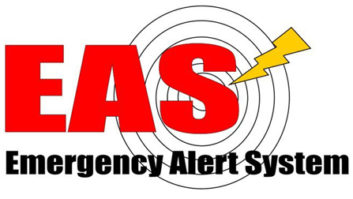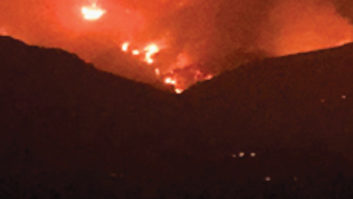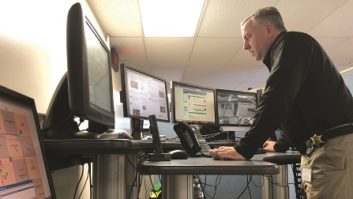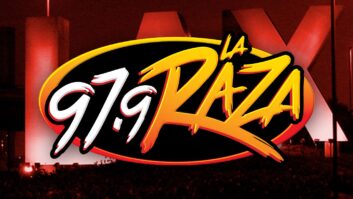Broadcast engineers and others in the alerting community in Washington state are asking authorities why EAS has not been used to alert the public about wildfires in the Eastern and Central portions of the state.
The Carlton Complex Fire (which is a combination of several blazes) has burned about 400 square miles — more than four times the size of Seattle — making it the largest wildfire in the state since record-keeping started, according to USA Today. Some 1,200 homes have been evacuated in 12 towns and may areas remain without power.
The fires began Saturday in Lincoln County and Spokane County. There was a Facebook page dedicated to the fires within the first hour, according to one poster on the SBE Chapter 16 listserv, who added the flames of one wildfire burned 13,000 acres within 24 hours. He questions why broadcasters like his station air “hundreds” of monthly and weekly required tests if alerting authorities aren’t going to originate EAS alerts.
At a local emergency management meeting scheduled for today, broadcasters intended to ask authorities the same question.
A manager for Spokane emergency management authorities said on the listserv he would check into the situation to find out if using EAS was considered or if it was overlooked. He did note that “Alert Spokane,” which is a local emergency notification system that includes reverse 911, was used and sheriff’s deputies went door-to-door to alert residents to evacuate affected areas.
Washington State Emergency Communications Committee Chair Clay Freinwald stated that back when Mt. St Helens erupted there was a push for an improved statewide public warning system. So he and others worked hard to do that. Now, “to see that it’s not being used for the worst wildfires in state history is enough to make me want to bang my head against a brick wall.”
“I would hope that after the ashes have cooled that this state would look at the public warning systems they have and ask some very pointed questions,” stated Freinwald. Radio World has reached out to him to further get his take on the issue.












